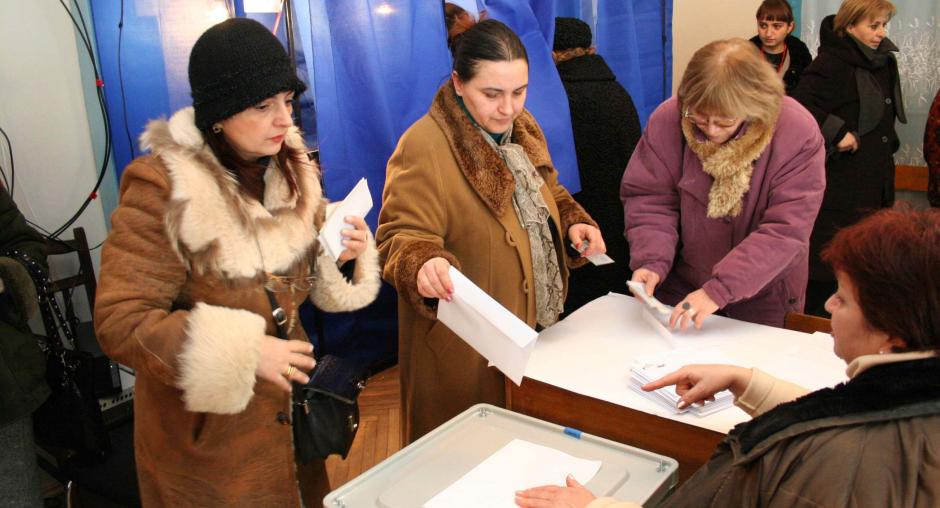Extraordinary Presidential Election, 5 January 2008

Type:
Country:
Mission at a glance
- Head of Mission: Dieter Boden (Germany)
- Core team of 14 staff from 12 OSCE states
- 28 long-term observers deployed in the regions
- 300 short-terms observers requested from OSCE states
Mission schedule
- 6 Dec: Mission opens
- 10 Dec: Arrival of long-term observers
- 1 Jan: Arrival of short-term observers
- 5 Jan: Election day
- 6 Jan: Press conference
Following an invitation from Georgia's Foreign Ministry, ODIHR deployed an election observation mission on 6 December to observe the extraordinary presidential election on 5 January.
Headed by Ambassador Dieter Boden of Germany, the mission consisted of 14 international staff based in Tbilisi drawn from 12 OSCE participating States. Twenty-eight long-term observers were deployed throughout the country on 12 December.
For election-day observation, the mission joined efforts with observer delegations from the OSCE Parliamentary Assembly, the Parliamentary Assembly of the the Coucil of Europe, and the European Parliament. Together, some 495 short-term observers observers from 44 OSCE participating States were deployed prior to election day.
According to the mission's final report: "In its Statement of Preliminary Findings and Conclusions of 6 January, the IEOM stated that while the election was in essence consistent with most OSCE and Council of Europe commitments and standards for democratic elections, it also revealed significant challenges which need to be addressed urgently. Although this election represented the first genuinely competitive post-independence presidential election, shortcomings were noted. The campaign was overshadowed by widespread allegations of intimidation and pressure, among others on public-sector employees and opposition activists, some of which were verified by the OSCE/ODIHR EOM. The distinction between State activities and the campaign of the ruling United National Movement (UNM) party candidate, Mr. Mikheil Saakashvili, was blurred. In addition, as referenced in a Post-Election Interim Report issued by the OSCE/ODIHR on 18 January, other aspects of the election process, notably vote count and tabulation procedures, as well as the post-election complaints and appeals process, further presented serious challenges to the fulfillment of some OSCE commitments."
